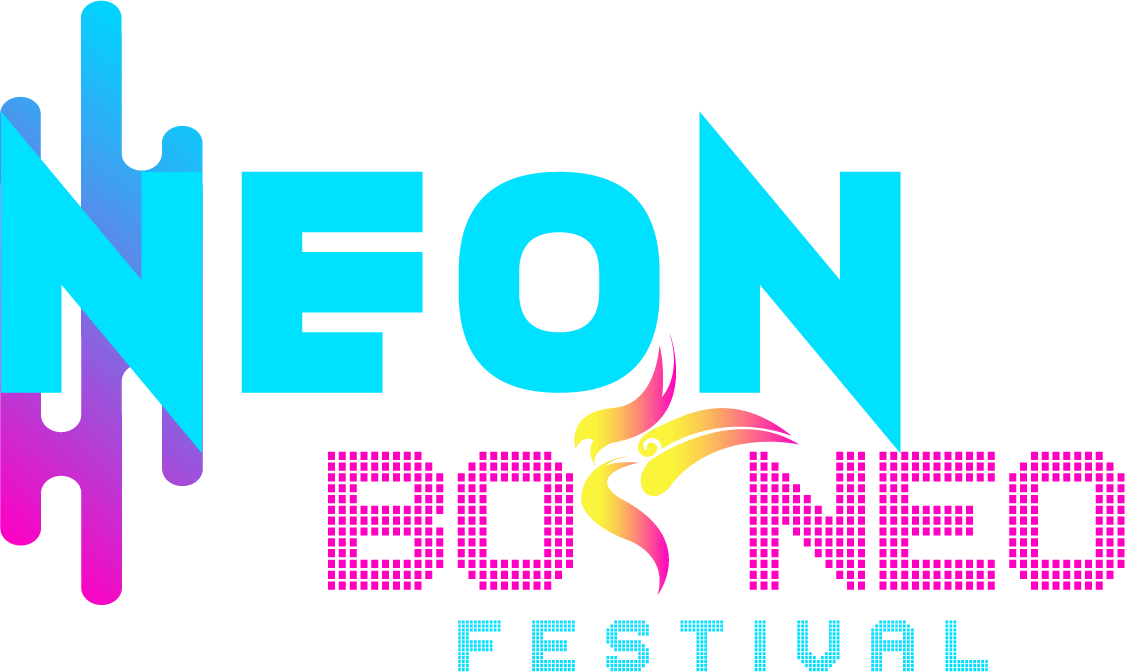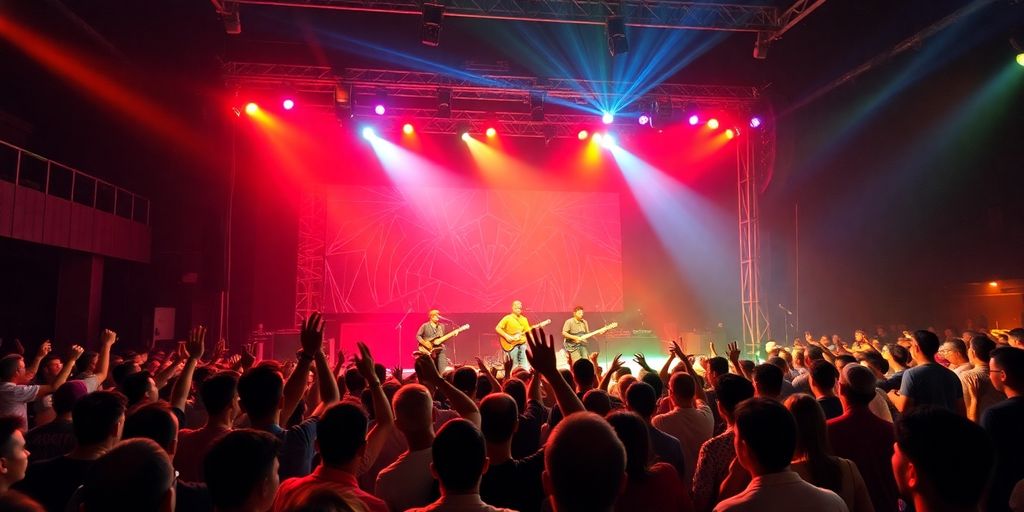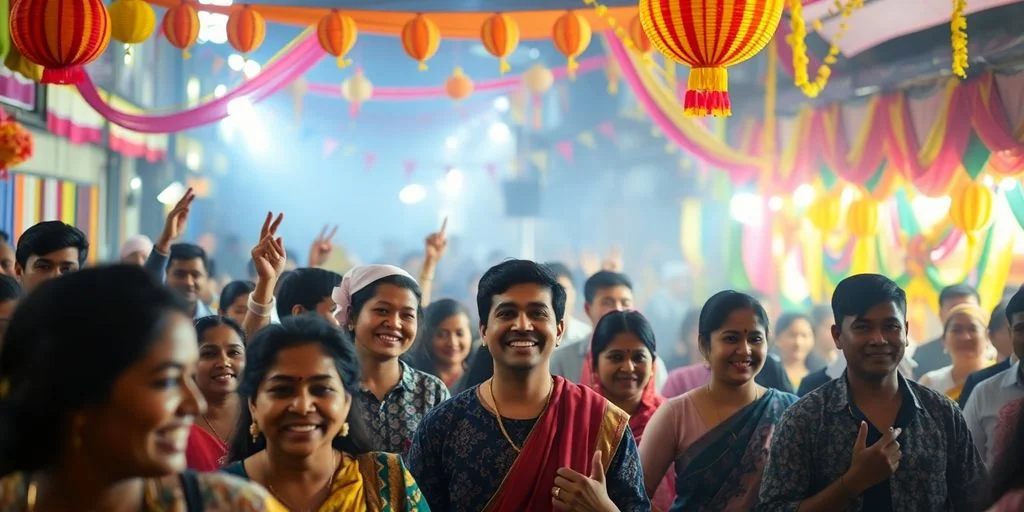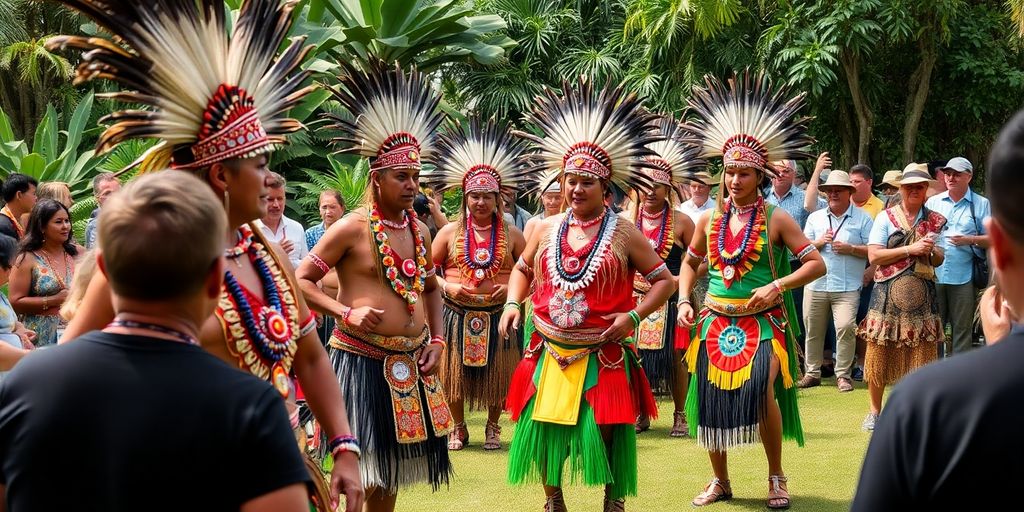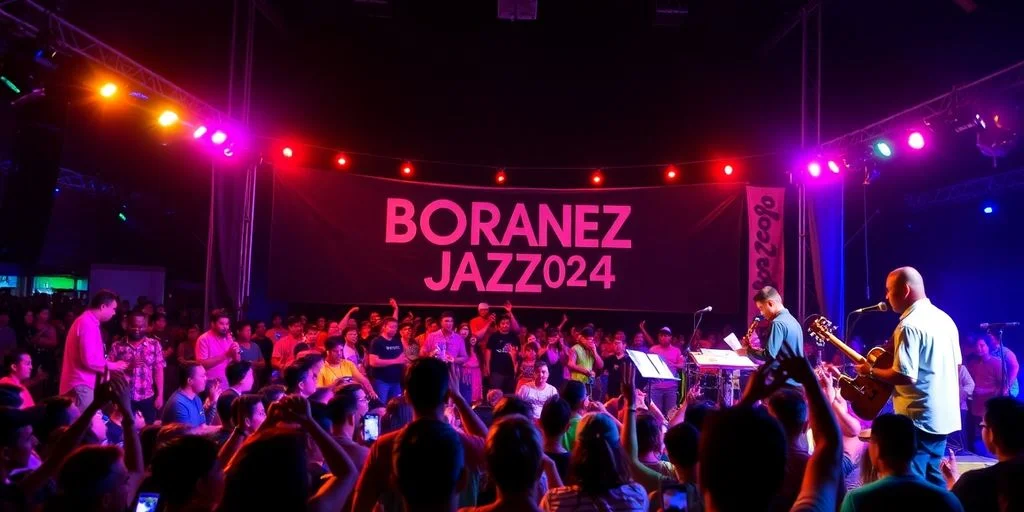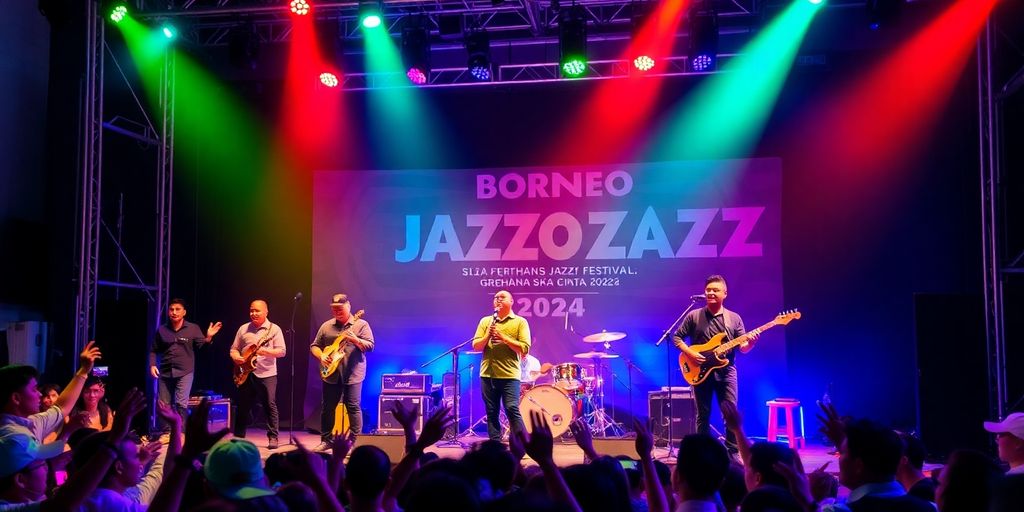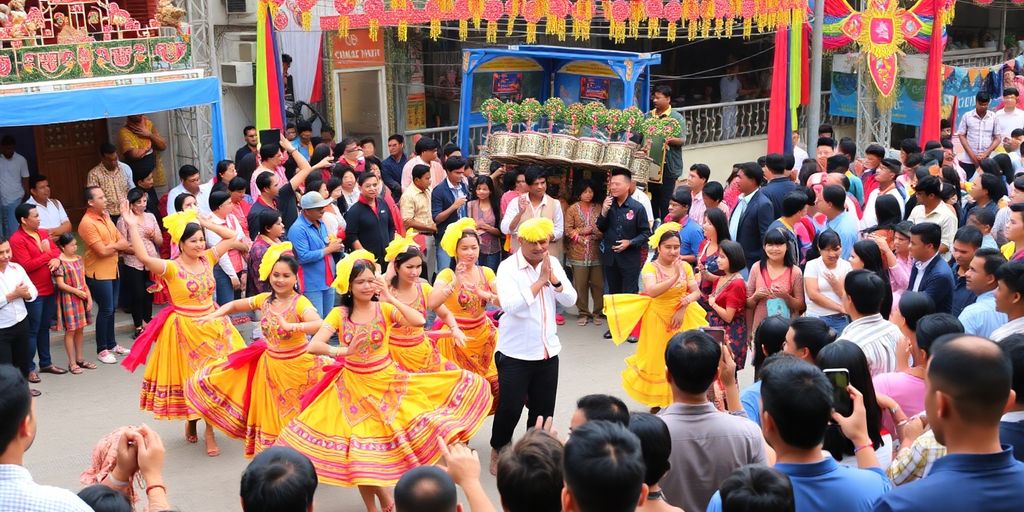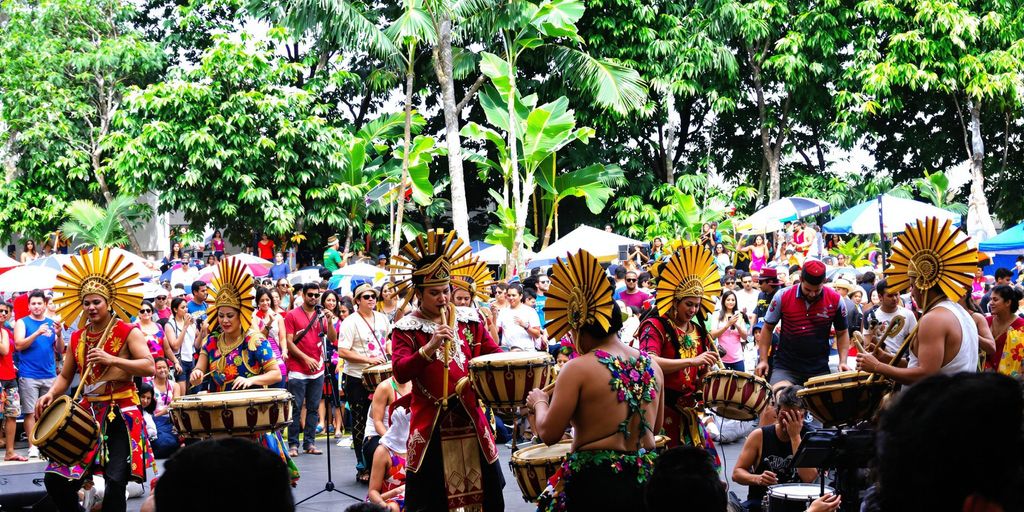Music Festivals in Borneo: A Journey Through Sound and Culture
Introduction: Setting the Scene
Nestled in Southeast Asia, Borneo is an island rich with natural beauty, biodiversity, and cultural diversity. Known for its dense rainforests, vibrant wildlife, and ancient traditions, Borneo also hosts a thriving music festival scene that showcases its unique heritage while blending in modern and global influences. Every year, music lovers from around the world travel to Borneo to experience festivals that offer an extraordinary mix of sound, culture, and scenery. The festivals are not just about music; they’re a celebration of identity, heritage, and community, drawing both local and international audiences eager to experience the island’s rhythm.
This article explores the various music festivals in Borneo that celebrate indigenous traditions, jazz influences, and contemporary sounds. Each festival has its own vibe, bringing people together to dance, celebrate, and immerse in a cultural fusion that reflects Borneo’s spirit. Whether you’re an avid music festival-goer or a curious traveler, Borneo’s music festivals offer a unique adventure into sound, art, and tradition.
Section 1: A Cultural Melting Pot of Music Festivals
Borneo’s music festivals are a melting pot where ancient traditions meet modern sounds, creating a unique blend that highlights the multicultural heritage of the island. Home to a multitude of ethnic groups, including the Dayak, Iban, and Kadazan-Dusun communities, Borneo’s festivals showcase an array of traditional music, rituals, and performances that reflect the diversity of the island. At the same time, these festivals incorporate international genres like jazz, rock, and electronic music, making them attractive to a global audience.
Music festivals in Borneo are also valuable cultural exchanges, with local artists often performing alongside international acts. This fusion creates a dynamic atmosphere where visitors can experience traditional dance and music, such as the gong orchestras of the Kadazan-Dusun or the sape lute music of the Dayak people, right before watching a performance by a jazz ensemble or electronic DJ. The interaction between local and global music scenes has allowed these festivals to grow in popularity while preserving and promoting Borneo’s cultural heritage.
Through music festivals, the younger generation in Borneo is also reconnecting with their roots. These events allow indigenous youth to take pride in their cultural heritage and showcase their traditional art forms to a global audience, creating a sense of cultural pride and unity.
Section 2: Notable Festivals on the Island
Borneo hosts a range of notable music festivals, each with its unique atmosphere and focus. Here are some of the most popular festivals that bring together music, culture, and community.
Rainforest World Music Festival (RWMF)
The Rainforest World Music Festival (RWMF) is perhaps the most famous music festival in Borneo and one of the largest in Asia. Held annually in the lush Sarawak Cultural Village near Kuching, this festival celebrates world music with a lineup that includes traditional, folk, and fusion music from across the globe. The RWMF began in 1998 and has since grown into a massive event that attracts thousands of attendees from around the world.
The RWMF offers more than just performances; it provides a fully immersive experience with daytime workshops, cultural demonstrations, and interactive sessions that allow festival-goers to learn about the music and instruments of various cultures. Attendees can participate in drum circles, learn indigenous dances, and listen to the stories behind traditional songs. The festival’s location, nestled between the jungle and a beach, adds to the magical atmosphere, making it a unique destination for music lovers.
Borneo Jazz Festival
Another major music event, the Borneo Jazz Festival, takes place in Miri, Sarawak. Known for its focus on jazz, blues, and world music, the Borneo Jazz Festival attracts international jazz artists while also providing a platform for local and regional talent. The festival has a reputation for its laid-back vibe, where music enthusiasts gather to enjoy jazz performances against the backdrop of the South China Sea.
The Borneo Jazz Festival is dedicated to promoting jazz as an art form while also celebrating the fusion of jazz with indigenous sounds. The event features workshops, jam sessions, and community outreach programs that encourage the exchange of musical ideas. Over the years, the festival has helped to foster a jazz culture in Borneo, providing exposure for local musicians and attracting tourists who seek a blend of tropical relaxation and musical sophistication.
Neon Borneo Music Festival
The Neon Borneo Music Festival brings a contemporary edge to Borneo’s festival scene. Known for its energetic and vibrant atmosphere, this festival combines music genres like EDM, hip-hop, and pop, appealing to younger crowds and those looking for a lively party experience. Neon lights, high-energy performances, and impressive stage setups give the festival its iconic feel, making it a standout event for nightlife and music lovers. Neon Borneo has become a prime destination for both locals and tourists who want to experience modern music in a tropical setting, connecting the island’s urban scene with the global music landscape.
Borneo Sonic
Another popular festival, Borneo Sonic, is focused on electronic music and the thriving dance scene. With renowned DJs and electronic artists from across Asia and beyond, Borneo Sonic provides a platform for fans of house, techno, and other electronic subgenres. The festival not only features big names but also showcases up-and-coming DJs from the region, supporting Borneo’s budding electronic music community. Borneo Sonic’s lineup and high-energy performances bring a club-like experience to Borneo, attracting fans of electronic music who are looking to dance the night away under the stars.
Borderland
Borderland offers a different take on Borneo’s music festivals, combining music with art installations, wellness activities, and cultural experiences. Held in remote, scenic locations, Borderland provides an immersive experience for festival-goers looking to connect with both music and nature. The festival focuses on creating a sense of community, emphasizing creativity and self-expression through workshops, art displays, and performances that often extend beyond music. From sunrise yoga sessions to art installations under the open sky, Borderland offers a unique blend of music and mindfulness, attracting those who seek more than just a typical festival experience.
Sabah Fest
Sabah Fest is a unique cultural festival held annually in Kota Kinabalu, Sabah, showcasing the traditional music, dance, and arts of the diverse communities in Sabah. Unlike other music festivals, Sabah Fest focuses exclusively on Sabah’s cultural heritage, making it a cultural spectacle that offers visitors a glimpse into the region’s history and traditions.
This festival features elaborate stage performances, traditional music ensembles, and reenactments of folklore and legends. The event is a proud showcase of Sabah’s identity and cultural resilience, attracting locals and tourists interested in experiencing the vibrant heritage of Borneo’s easternmost state. Sabah Fest also serves as an educational platform, where visitors can learn about Sabah’s various ethnic groups, their languages, and their ways of life.
Sunbear Music and Arts Festival
A relatively new addition to Borneo’s festival scene, the Sunbear Music and Arts Festival offers a more contemporary experience. Held in Kuching, this festival combines electronic music, rock, indie, and pop genres, attracting a younger audience looking for an energetic and modern festival vibe. Unlike the other festivals, which focus on traditional and folk music, Sunbear appeals to fans of electronic and alternative music, making it a distinct addition to Borneo’s diverse festival offerings.
The Sunbear Music and Arts Festival also incorporates environmental awareness as a core aspect of its identity. Through workshops, talks, and partnerships with conservation organizations, the festival educates attendees about Borneo’s environmental challenges, such as deforestation and wildlife preservation. The Sunbear festival thus appeals not only to music lovers but also to those who are passionate about sustainability and conservation.
Other Emerging Festivals
In addition to the major festivals, several smaller and emerging music events take place across Borneo. These festivals cater to niche genres and communities, offering platforms for lesser-known artists and experimental performances. Examples include underground electronic music events, indie rock gatherings, and folk music festivals that promote specific cultural identities. These emerging festivals are building a broader music culture in Borneo, showing the island’s potential to become a global music destination.
Section 3: Cultural Significance and Impact on Local Communities
Borneo’s music festivals have profound cultural significance and positive impacts on local communities. These festivals help revive and preserve indigenous music traditions, bringing them into the spotlight in a way that fosters pride among locals and educates international visitors. Indigenous instruments, such as the sape, gongs, and bamboo flutes, are given a prominent stage, inspiring young musicians to learn and carry forward their cultural heritage.
Economically, these festivals boost the local economy by creating jobs and attracting tourists. Local artisans, vendors, and small businesses benefit from the influx of festival-goers, as stalls selling traditional crafts, clothing, and food line the festival grounds. In some cases, festivals even provide year-round employment opportunities for locals involved in the planning and execution stages.
The collaborative nature of these festivals also fosters creative exchanges between international and local artists. Visiting artists learn about Borneo’s indigenous music and often collaborate with local musicians, leading to unique fusion performances. These collaborations expand the creative horizons of local artists, who gain exposure to new styles and techniques, enhancing the richness of Borneo’s music scene.
Section 4: Environmental Considerations and Sustainable Practices
Given Borneo’s sensitive ecosystems, environmental sustainability is a key concern for the island’s music festivals. Many festivals have implemented eco-friendly practices to minimize their environmental impact, such as promoting the use of reusable or biodegradable materials, reducing single-use plastic, and encouraging recycling among attendees. Festivals like the Rainforest World Music Festival and Sunbear Music and Arts Festival have taken proactive measures to educate participants on conservation issues.
Some festivals collaborate with local environmental organizations to support reforestation efforts, wildlife preservation, and community conservation projects. For example, festival organizers often partner with conservation groups to raise awareness about endangered species like the orangutan and the sun bear, as well as the importance of preserving Borneo’s rainforests.
Sustainable tourism is also promoted, with festival organizers encouraging attendees to adopt eco-friendly practices, such as carpooling, reducing waste, and respecting local wildlife. These initiatives not only reduce the environmental footprint of the festivals but also create a more conscious and responsible tourism culture.
Section 5: Travel Tips for Music Festival-Goers in Borneo
For those planning to attend a music festival in Borneo, here are some helpful travel tips to enhance the experience:
- Timing: Most major festivals, like the Rainforest World Music Festival, take place in July, during the dry season. Check festival dates in advance and book accommodations early, as hotels tend to fill up quickly.
- Packing Essentials: Borneo’s weather can be unpredictable, so pack rain gear and lightweight, breathable clothing. Bring eco-friendly items like reusable water bottles and bags to minimize waste.
- Accommodation: Options range from eco-lodges to budget hostels and high-end hotels. Staying close to the festival grounds is recommended for easy access.
- Getting Around: Transportation options include local buses, taxis, and ride-sharing services, though renting a vehicle may offer greater convenience for exploring Borneo’s remote areas.
Section 6: The Future of Music Festivals in Borneo
The future of Borneo’s music festival scene looks bright, with potential for growth in both international reach and cultural depth. As the popularity of these festivals rises, organizers face the challenge of balancing tourism with environmental conservation and cultural preservation. Sustainable growth is key, with a focus on promoting responsible tourism and continuing to respect indigenous customs and ecological needs.
Virtual elements and hybrid events may become more common, allowing broader access to Borneo’s music festivals for
those who cannot attend in person. The fusion of traditional and modern music is likely to evolve further, as new generations bring fresh ideas and influences, creating a dynamic and evolving festival landscape.
Conclusion: Celebrating Borneo Through Music
Music festivals in Borneo are more than just events; they are celebrations of culture, community, and nature. These festivals bring people together, bridging cultures and generations through music and art. By experiencing a music festival in Borneo, visitors gain a deeper understanding of the island’s rich heritage and natural beauty, while locals take pride in sharing their traditions with the world. Whether you’re drawn by traditional rhythms, jazz improvisations, or electronic beats, Borneo’s music festivals offer an unforgettable journey into the heart of one of the world’s most fascinating destinations.
